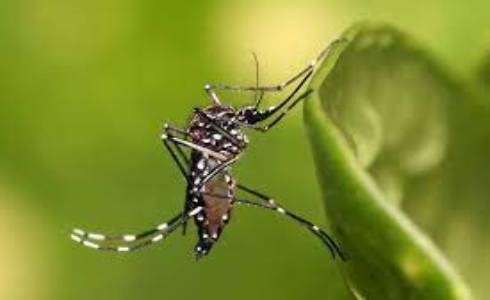
People with comorbidities are at greater risk of developing severe dengue: Experts
People with
comorbidities such as diabetes, hypertension, asthma, or other chronic
conditions are always at a higher risk of developing severe dengue,
experts say.
As India grapples with a surge in dengue cases, experts are rallying together on National Dengue Day (May 16) to raise awareness about the alarming spread of this mosquito-borne disease.
With the number of reported cases increasing alarmingly in cities like Delhi, Mumbai, Bengaluru, Lucknow, and others in the last two months, they have emphasized the need for preventive measures and timely medical intervention to combat the disease effectively.
The experts emphasize that precautionary measures should be taken to prevent mosquito bites while stepping outside the home. All persons should wear clothes covering arms and legs and remain away from potentially risky areas such as water-logged regions. The use of mosquito repellent creams in overexposed areas is important.
Dr. Rajkumar, Sr. Consultant- Internal Medicine, Indian Spinal Injuries Centre, Delhi, said that dengue is a mosquito-borne disease and its cases are on the rise because of the recent rainfall in the National Capital Region.
Symptoms of dengue fever may include sudden high fever accompanied by severe headaches, fatigue, nausea, vomiting, joint and muscle pain, and pain behind the eyes.
“We are witnessing a surge in our hospital and last week 5 patients with dengue symptoms visited our OPD and based on their condition we admitted them. Two of them required Intravenous (IV) fluid supplementation, or drips while three were managed with oral fluids and medications. They are recovering well,” he added.
Dengue fever shares many pathogenic and clinical features with the ongoing Covid-19 virus which might make it very difficult to differentiate the two infections.
“Prevention is always better than cure so one should take all the precautions to avoid getting infected. It usually takes five to six days for a patient to recover and the two most common complications in dengue that are being seen are low blood pressure and a drop in platelets,” added Dr Rajkumar.
The experts also emphasized the criticality of managing dengue in individuals with comorbidities.
Dr. Ruchita Sharma, Consultant in Internal Medicine at Medanta, Lucknow said, "This mosquito-borne disease is a public health hazard and can be life-threatening for people with comorbidities. We have been witnessing several such cases of dengue with comorbidities, and that needs extra efforts on our part to manage the disease. People with comorbidities such as diabetes, hypertension, asthma, or other chronic conditions are always at a higher risk of developing severe dengue."
Dr. Sharma explained that individuals with comorbidities are more prone to experiencing complications such as organ damage, hemorrhage, or severe plasma leakage. The weakened immune system in these individuals makes it harder for the body to fight off the dengue virus, leading to a more prolonged and severe illness.
“For patients with pre-existing medical conditions, controlled blood sugar, and blood pressure can fluctuate, requiring close monitoring. In severe cases, hospitalization is necessary for closer monitoring and intensive care,” she added.
"On Dengue Day, we need to educate people with comorbidities to take extra precautions to prevent dengue by avoiding mosquito bites and eliminating breeding sites around their homes," Dr. Sharma added.